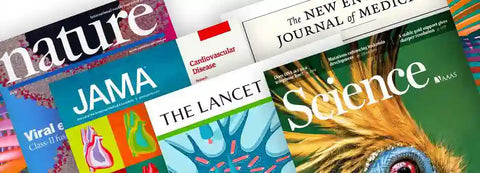Signs of Unclear Communication and How To Fix the Problem | Tips on How to Get Your Research Published
In this text-rich world of mass online communication, readers have become rather adept at reading right over errors and providing their own corrections and adjustments on the fly. In many cases, such corrections will be appropriate in that the reader making them will receive the message intended by the author. In others, however, they will not represent what an author intended at all, but instead be a reflection of what the reader expected or wanted to understand. In still others, an author’s text will be so rife with errors that irritation will drive readers away or, in the worst of situations, comprehension will prove virtually impossible even for those interested enough in the topic to continue slogging through a document.
Problems with clear communication are exacerbated by the fact that reception can be a very quiet matter, and it can therefore prove difficult to know when your text is not communicating clearly. Reception is rarely entirely silent, however, and it is wise to watch for the signs of unclear communication:
• Repeated rejections or criticisms from acquisitions proofreaders and peer reviewers may suggest that your prose is unclear or ineffective, especially if language, grammar or writing style is singled out as a problem.
• Similarly, colleagues and friends who read your prose prior to dissemination may serve as good indicators. If one reader has trouble with understanding your writing, it may simply be a matter of personal preference, but if three do, there is very likely a significant problem in need of attention.
• General readers of your material in blogs and other online venues may misunderstand what you are saying and comment accordingly. This is an excellent sign that you are either communicating unclearly or communicating something very different from what you intend. Comments suggesting that your prose is difficult to understand or that your meaning is compromised by errors are also telltale signs of language problems.
• Citations of your work may also serve as useful indicators. Are your arguments represented accurately in the work of other scholars? Are your conclusions and implications applied effectively in their work? If not, you may not be reporting your research as clearly as you could, and if you are misunderstood by colleagues, it is almost certain that your message is not coming across with clarity and precision.
These and other signs may not always indicate a lack of clear and accurate prose on your part, but in many cases they do, and they can certainly be effective calls to action. Focussing on exactly how your written communication is failing or falling short of the mark will be the first step in improving your prose and resolving the problems. Are there certain concepts or situations that confuse your readers when you try to explain them? Are there certain constructions that seem to mean something very different to your readers than you thought they would? If so, these are good places to begin. You may need to choose different words and phrases and you may need to learn a little more about English grammar and syntax in order to adjust your writing style for accuracy and clarity, but all such efforts will ultimately contribute to more effective communication.
If, however, you find that you cannot identify the problems with your writing and design effective solutions, you may benefit from some professional assistance. A colleague who shares your interests and specialisations can prove very helpful, though the time he or she has to dedicate to your work may be limited. A qualified academic or scientific editor or proofreader with similar interests and specialisation may provide the perfect solution. Such professionals are familiar with the high standards of scholarly communication and the problems that frequently crop up in academic and scientific writing, and they are also able to bring objectivity and sensitivity to your writing along with their knowledge and experience.
Why Our Editing and Proofreading Services?
At Proof-Reading-Service.com we offer the highest quality journal article editing, dissertation proofreading and online proofreading services via our large and extremely dedicated team of academic and scientific professionals. All of our proofreaders are native speakers of English who have earned their own postgraduate degrees, and their areas of specialisation cover such a wide range of disciplines that we are able to help our international clientele with research editing to improve and perfect all kinds of academic manuscripts for successful publication. Many of the carefully trained members of our manuscript editing and proofreading team work predominantly on articles intended for publication in scholarly journals, applying painstaking journal editing standards to ensure that the references and formatting used in each paper are in conformity with the journal’s instructions for authors and to correct any grammar, spelling, punctuation or simple typing errors. In this way, we enable our clients to report their research in the clear and accurate ways required to impress acquisitions proofreaders and achieve publication.
Our scientific proofreading services for the authors of a wide variety of scientific journal papers are especially popular, but we also offer manuscript proofreading services and have the experience and expertise to proofread and edit manuscripts in all scholarly disciplines, as well as beyond them. We have team members who specialise in medical proofreading services, and some of our experts dedicate their time exclusively to dissertation proofreading and manuscript proofreading, offering academics the opportunity to improve their use of formatting and language through the most exacting PhD thesis editing and journal article proofreading practices. Whether you are preparing a conference paper for presentation, polishing a progress report to share with colleagues, or facing the daunting task of editing and perfecting any kind of scholarly document for publication, a qualified member of our professional team can provide invaluable assistance and give you greater confidence in your written work.
If you are in the process of preparing an article for an academic or scientific journal, or planning one for the near future, you may well be interested in a new book, Guide to Journal Publication, which is available on our Tips and Advice on Publishing Research in Journals website.








